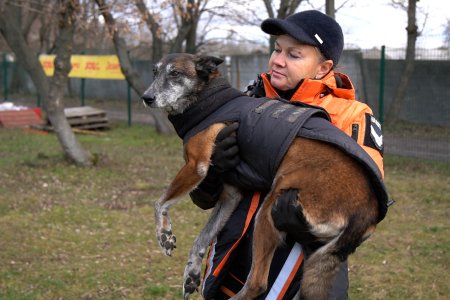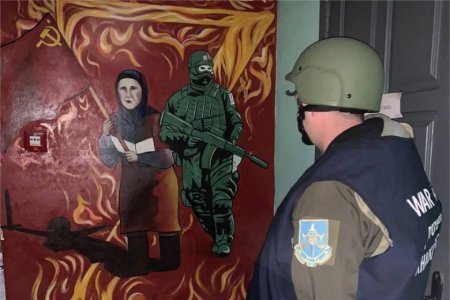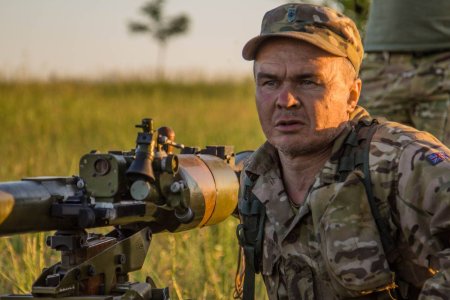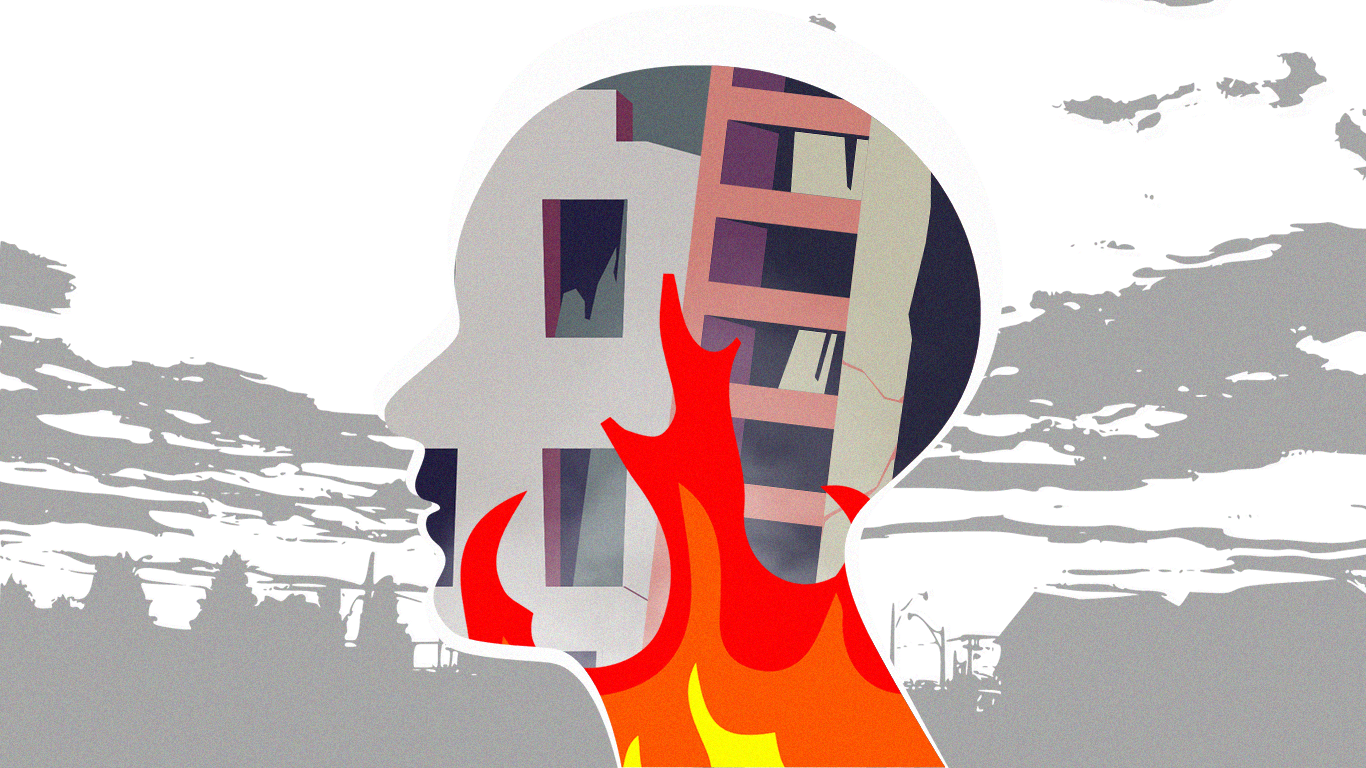
You work as a psychologist-supervisor in the Kharkiv Human Rights Protection Group. How did you join them?
I was at a human rights conference held in Berlin. I had a speech there: I spoke about the psychological state of the Belarusian civil society. Having heard me, Ukrainian colleagues suggested that I participate in a project to help Ukrainian psychologists who work with people affected by military operations in Ukrainian territory. This is how I become a supervisor — just like that.
Previously, you worked in the Ministry of Emergency Situations of Belarus. How was that job?
I will say this: it has always been difficult with human rights in Belarus. I worked as a psychologist in the Belarus Ministry of Emergency Situations rescue team. In addition to working with rescuers, my main task was to help the civilian population that had suffered from emergencies of a different kind: natural and man-made. I loved my work, but the administrative aspect wasn’t easy.
Why did I leave? Repression affected not only political opponents of the current government. They affected ordinary citizens. They touched a massive number of Belarusians. It got to the point that even the societies for the protection of wild birds, “Akhova birdie Batskaushchyny,” even these people were affected by repression.
One day in August 2021, at 6:30 a.m., KGB workers came to my house: they began to knock on the iron doors, and after 10 minutes, I had to open it. Then I quickly deleted the nicknames of clients who had once contacted me, so there was nothing in the phone’s memory. The KGB searched the house for five hours. At the same time, I received a prosecutor’s sanction letter that said I was a witness to some criminal case related to extremism or something along these lines. I tried to ask the KGB: since when do they search witnesses’ homes? I was told: “You ask many questions; you have no right to do so. We put the questions here.” I was detained. The KGB interrogated me for five hours at their offices. There was paperwork. I was released, but, as I was told, “not for long.”
For probably another ten days, I naively thought it might blow over, so I would not leave Belarus. But unfortunately, after two weeks, there was a program on the “First Republican Channel” called “This is Different.” In this program, I was named a “psychological center of the protest movement”, a trendy coordinator, some kind of “Lithuanian puppeteer” by an independent volunteer psychologist who works on various platforms of civil initiatives, which at that time were very numerous in Belarus. Probably, some propagandists broadcasted that we were all paid by European money. In general, it was complete nonsense.
Our Belarusian volunteers from Poland called me and said: “Get ready — you have two hours. Pack your bags and leave.”
Now you are working with victims of the war in Ukraine. Have you encountered something similar before, during your work in Belarus?
That is an excellent question, Denys. The thing is, I’ve been in a lot of scary situations. A crisis psychologist who works in the field most likely does not come when someone’s house is burned down or something similar happens. As a rule, they come when there are human casualties. Mass casualty. Or when children died under terrible, terrible circumstances. No work can scare me. But what I encountered supervising Ukrainian colleagues is that despite my twenty years of experience, sometimes I feel terrified. Because here I see not only violence. I see that this is violence on the verge of sadism. As a psychologist with an analytical mindset, I am very interested in where these demons of violence, which can force a person to do this, come from. It’s hard for me to even talk about these terrible cases and situations.
Have you found an answer or a hypothesis about where these demons come from, this sadism, addiction to sadism?
Yes, I have read a lot of literature on this subject. I especially like Viktor Frankl and other scientists who also described this phenomenon. You know, I suspect that these are internal unfulfilled needs, compensation for one’s inferiority. In Belarus, we also faced and are facing this. A person with powers of authority who does not define the boundaries of these powers, and does not bear responsibility, can turn into a rapist, an animal who does not have certain moral standards. Such a person does not separate good from evil. I think this is a profound question that many scientists, philosophers, psychologists, psychiatrists, and others are still puzzled over.
But here, I see one character trait inherent in both the format of Belarusian protests and violence in Ukraine: a person is brainwashed by propaganda. This propaganda tells him: “This is black, and this is white.” It is dichotomous thinking, which does not involve any halftones. There are all enemies, but here are the good ones. Take, for example, a riot policeman who beats [people] in prison. His personality is that of a person who is not developed intellectually. This person is usually from a rural area and has no other options. Higher education and living in Minsk or other big cities were not attainable. And then they gave him a baton and said: “Go, beat the evil ones because they are all making trouble here, and you will be satisfied.” In Ukraine, when I researched and analyzed all these moments of sadism against innocent people, I also saw these trends.
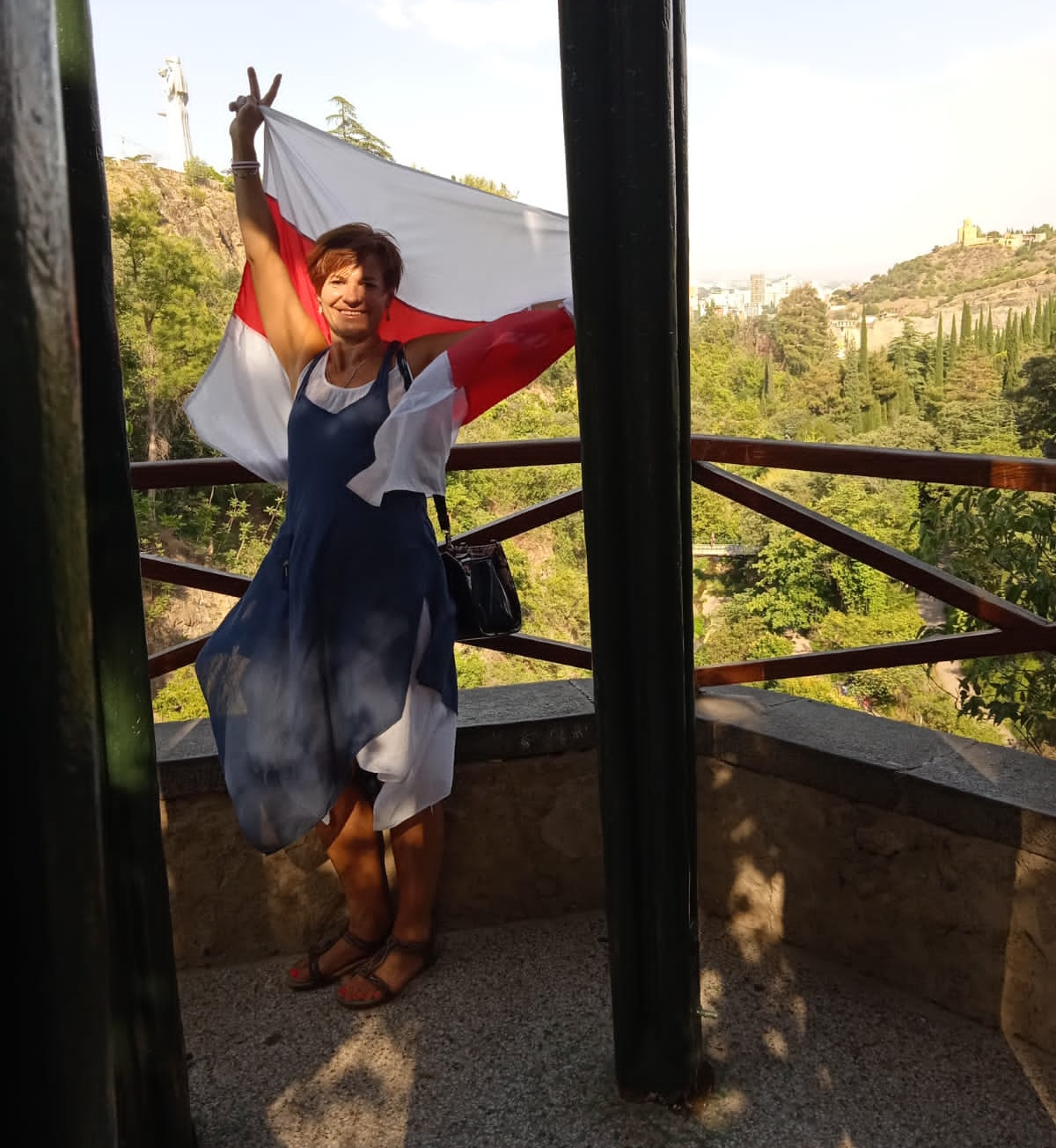
But in Russia, many people serve in the National Guards or army formations. Can so many people be exposed to these several factors — power, personal inferiority — thus turning into an animal?
This is also a difficult question. Of course not, of course not. I do not believe that everyone, without exception, has these complexes, but there is such a thing as “herd instinct.” There is a concept of “crowd”. Because I worked in the Ministry of Emergency Situations, I also studied the crowd phenomenon extensively. The crowds existed in the days of the Soviet Union: marches, all sorts of demonstrations, and so on, especially in the early years of Soviet power. Psychologists generally have such an expression: “Do not go into the crowd if you are not paid for it.” This means that you do not go there if you do not want to lose your individuality. To be honest, Russian chauvinism has not been abandoned. It seems they were ordinary people before that; they went to work, raised children, visited Ukraine, where they were met with bread and salt, and everything was fine. And suddenly, they became somehow abnormal. They go to Ukraine to kill civilians.
Back in 2019, after visiting St. Petersburg, I told my relatives: “You know, Russia smells of war.” Nobody believed me, and everyone thought I needed my head examined; this could not be possible. However, it was already felt then. It manifested in some Volkswagens constantly driving with the inscription “To Berlin”, “We can repeat it”. Such propaganda was all around in these inscriptions: “Russia is ahead of the rest. Russia is a great country”. This is an artificial feeding of pseudo-greatness, this stupid national pride. I agree with those who said: “The most stupid version of pride is national pride.” (This is a phrase from the book of Arthur Schopenhauer, — ed.). When a person is told that he is more remarkable than the rest — Ukrainians, Belarusians, or someone else — a person begins to believe in this firmly. And inflating this pseudo-greatness, they generally follow the crowd and think this is normal.
Let’s return from the perpetrators’ personalities to the victims. Why do such people need a psychologist, and how can they help?
Before answering this question, I will say that specialists currently face a huge problem, or rather, several problems. There are a vast number of injured people. You can even talk about such a phenomenon as collective trauma — I’m not afraid to say this. And people still live in this particular traumatic environment. This is the first problem. The second is the low level of awareness about psychological assistance. “I don’t need a psychologist; everything is fine with my head,” “I’m not that crazy to go to a psychologist,” and so on. The primary emotion that accompanies trauma is fear. In Ukraine, people are still afraid. Under this trauma, they are still scared to turn to lawyers or psychologists. Because of that, the consequences of this situation will have to be disentangled for a very long time. When you have a severe bruise or your arm is broken, it heals, and you forget you were injured. Psychological trauma is when the arm is hurt, and you did not ask for help in time, and now there are consequences. It is when you cannot function normally with this arm or leg.
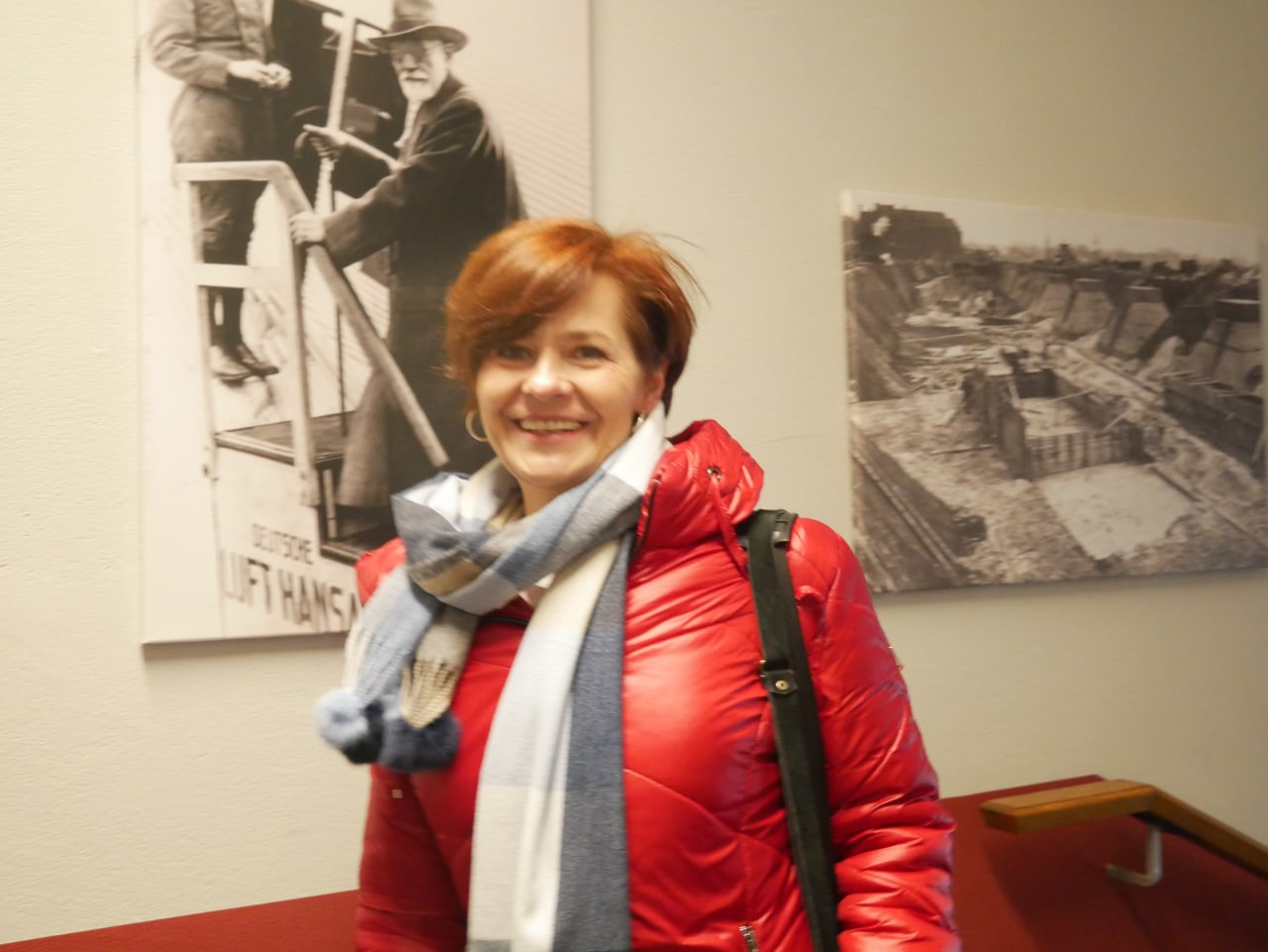
There is another problem that needs to be looked at from different angles. There are many initiatives and funds whose activities are usually aimed at one-time assistance. It could be social, financial, or humanitarian assistance. Working as a volunteer with Ukrainian refugees, you face the fact that people begin to receive some benefits from their status. That is, it is beneficial to be a victim. Psychological assistance aims to help a person escape this vicious circle of remaining a victim.
Does this “victim complex” mean profit, or is it just a psychological phenomenon?
It is hard to tell. Usually, it’s all connected and impossible to separate. When I worked in the Chornobyl program until 2016, we also conducted research on people who worked there and received specific bonuses. Then we asked our Ukrainian colleagues to share their research. And Russians. Then we had to compare these results with a country in a similar situation but with a different mentality. Such a country was Japan. And do you know what surprised us the most when we started reading Japanese sources? In our legislative state acts and Ukrainian and Russian, these people were called “persons affected by the accident at the Chernobyl nuclear power plant.” And now we call them: “persons affected by hostilities.” Or: “people who suffered from repressions in the Republic of Belarus.” However, we saw that in Japan, these people are called differently. They are called “survivors of the nuclear attacks of Hiroshima and Nagasaki.” Persons who overcame the consequences of the explosion at the Fukushima nuclear power plant. One word, but what a different meaning!
When I conduct some group classes with Belarusians, I always focus on this. I say that the victim always thinks that nothing depends on her. When, for example, a Belarusian says: “I can’t do anything,” to whom does she transfer responsibility? — To the State. And the State deprives them of their freedom. In fact, everyone can do at least something, maybe just a little. There is a fine line between being a victim and being a survivor.
You remembered Chornobyl. In fact, the mass evacuation of people unites Chornobyl and what is happening now in Ukraine. Despite the controversy, the Ukrainian State nevertheless decided to introduce the forced evacuation of children. We recently made a material about how child evacuation occurred in different countries during conflicts. But how can one explain, from the point of view of psychology, this unwillingness to leave a place where you are most likely to face death or injury? Moreover, staying threatens your children.
It’s also a rather difficult question. It must be considered more individually. When I was working on the consequences of Chornobyl, many Belarusians also flatly refused to leave the contaminated territories, stayed there, or returned later. Without electricity, without communications, to live in subsistence farming. It seems to me that this is the mentality: I cling to my land. Let them bury me here, but I won’t go anywhere. Also — the fear of something new, the fear of adaptation, the fear of the future. You know, as I have already said, the primary manifestation of trauma or collective, in general, is fear. Very often, people who are in a traumatic state are not able to reason rationally. This is a property of the human brain: when certain areas of the brain are overexcited, as they are responsible for emotions, there is a blockage of certain parts of the brain that are responsible for logic, for cognitive processes. Where one is stimulated, the other is inhibited.
Therefore, these irrational attempts to cling to one’s place and territory are usually associated with fear, which says it will be even worse elsewhere. And here is my land. This is where I will stay. When people began to leave Belarus because of the repressions, there was even a saying: “It is better to be a coward than a dead Belarusian.” If you go to prison, your life will most likely be shortened, or you won’t leave at all.
I am returning to what can provoke the victim’s position: usually, there is no built-in system of assistance and adaptation but one-time bonuses. In other words, there is fish, not a fishing rod. How many Ukrainians left for Poland and returned even to hot spots? Why? Because they arrived, stayed for a year, and experienced problems with employment, jobs, or no job. How to live further when social assistance is over? It scares people, in my opinion.
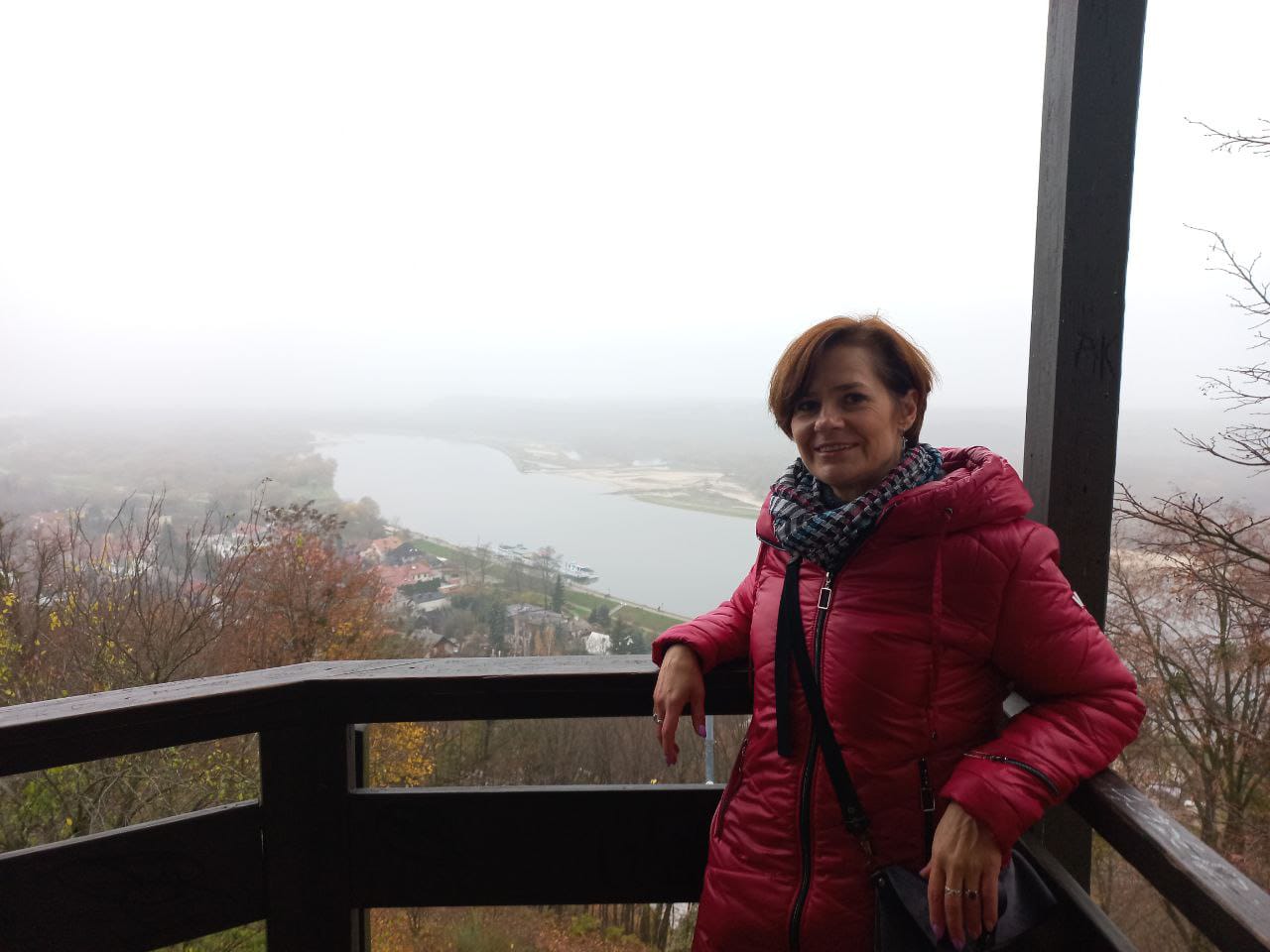
You said that people are inherently skeptical about psychology and psychologists. Just yesterday, I observed my colleague offering psychological help and the reaction to it. A person sees the words “psychologist” or “psychology” and is already quite confused. Then “psychotherapist” and “psychiatrist” are introduced, and some people’s heads explode. What one needs to understand in order not to get confused?
Denys, first of all, we need to raise the level of psychological culture through awareness. For example, I have always liked to work in tandem with doctors. Why? Because when, for example, somewhere in clinics or hospitals, a doctor explains to a patient that the soul and body are one, and it is impossible to separate one from the other, then be that as it may, our people are used to trusting the doctor. And it seems that this moment can be used to inform the population, but this is only one aspect. I agree with you — as a rule, people do not understand.
“There is no romance in our profession”
The second aspect is, unfortunately, many different types of psychologists. We encountered this both in Belarus and when we worked with refugees from Belarus. There are a considerable number of psychologists, various schools and directions, but very few trained crisis psychologists, specialists in working with trauma. In fact, there is no romance in this profession, similar to an emergency room doctor. If you ask if this work has a lot of romance, doctors will probably laugh for a long time. There are very few specialists in this narrow field, and the need for these specialists is excellent. Accordingly, people do not receive help, and there is a depreciation of psychological assistance. What happens is that a person says: “This psychologist did not help me at all.” A person can say that she has already changed their fifth psychologist. You immediately begin to think: “Maybe this person has certain problems; why has she changed five psychologists? Maybe she has some personality issues? We need to figure it out.” But in fact, everything is more straightforward. You find out that [these were] five psychologists far away from working with trauma.
What is Gestalt psychology, and why do we need it?
It is such a provocative question. I have a very respectful attitude to various classical areas of psychotherapy. I respect the work of [Frederik] Perls as the founder of the Gestalt approach in psychotherapy. This direction of psychotherapy is profound and thorough. It allows you to look deep into the problem, to explore it for quite a long time. But as I said, different specializations require different approaches to psychotherapy. When discussing collective trauma, the Gestalt approach stalls the recovery and often does not work. Gestalt approach, I’m not afraid to say it, is very hyped in terms of marketing.
What is the relationship between psychology and religion?
In crises, you do not consider whether a person is an atheist or a believer. You are working with a person. But in crises, the specialist often works with grief, loss, and death-related situations. If the psychologist does not have relevant experience, that is, a certain understanding of death, he cannot work with people facing death. That is, you can believe in God, or being an atheist, you can believe in a ripple effect or anything else. The main thing is that you have this faith inside. Without this belief, you cannot work as a crisis psychologist. For a person who does not believe in anything and completely denies everything, it is better not to go into crisis psychology.
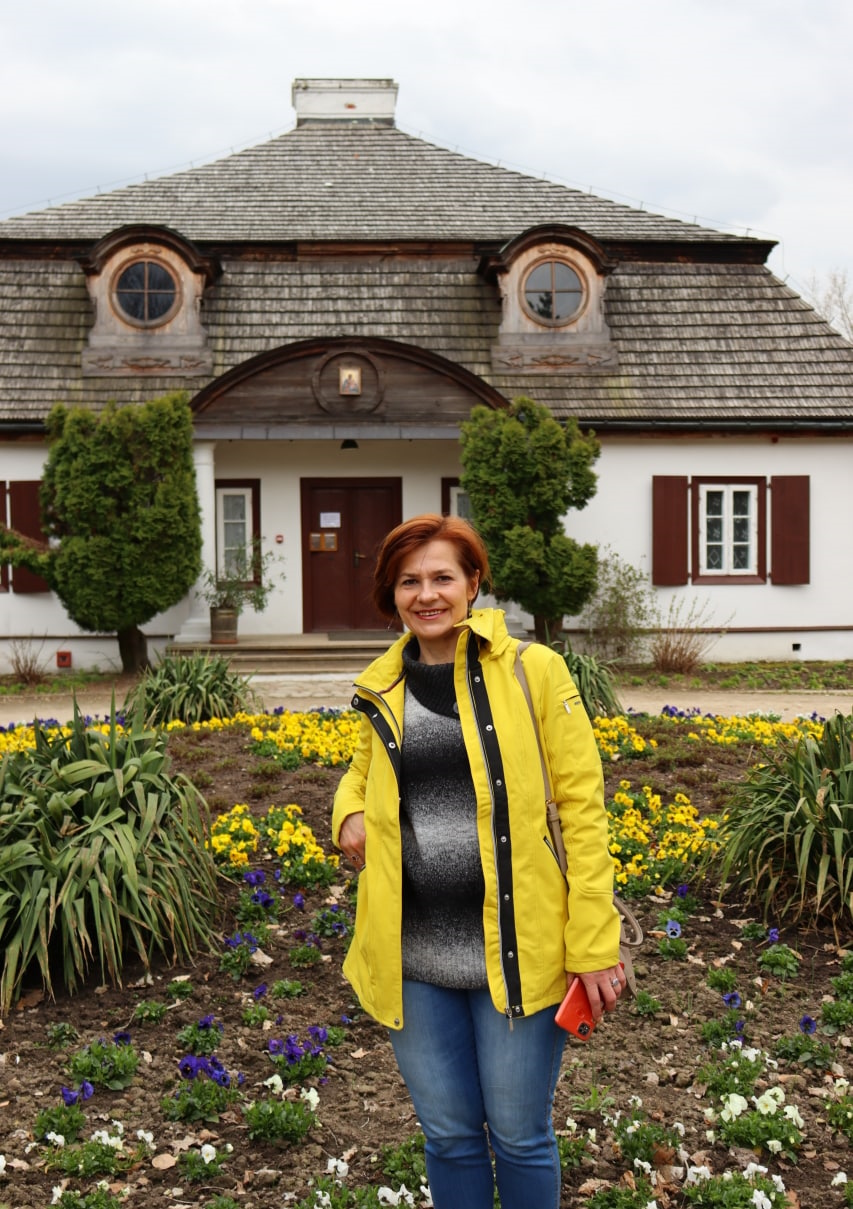
In fact, religion can be a perfect friend. I am talking about traditional religion, not sects — I have a negative attitude towards them. Traditional religion can be a good assistant for a psychologist to help people who have experienced trauma and loss. For example, all religious traditions are associated with the burial and memory of the dead. Accordingly, whenever possible, I try to interact with the clergy to supplement professional assistance with some religious traditions that also help a person overcome the consequences of this trauma.
Does a psychologist need a psychologist?
Unavoidably. A psychologist is a living person who also has problems. Because life without problems is simply impossible, but it is also meaningless, I guess. In addition, there is mandatory supervision. When I worked for the second or third time with Ukrainian colleagues who helped people from Bucha, I immediately requested oversight from my supervisor. Because all the stories that we worked on deeply affected even such an experienced person as I. And I also had to work through my emotional state so I could later fully function as a specialist, not as a sympathetic observer.
In Ukraine, PTSD is now on everyone’s lips. They say that if it has not overtaken you now, it will overtake you in the future. Is it really that common?
It’s true because trauma has its own characteristics — strength, suddenness, unpredictability, and lack of preparedness for injury. No one knew that bombs would fall on their head, and they would start shooting and torturing for no reason. But I would not say that PTSD is everywhere or everyone must urgently run to a psychologist. I always give an example: if you have a runny nose, this does not mean you immediately ran to the doctor. You just need to pay attention to it. It can generally pass by itself — immunity or some adaptive abilities will work. But if you have sinusitis, you better go to the doctor. You understand that you may potentially have sinusitis, whereas, with PTSD, people walk around with sinusitis. The first signs have already appeared: for example, sleep was disturbed. A person cannot sleep well for a long time — already the first sign that you need to go to a specialist. They begin to self-medicate, but often they do nothing at all. Accordingly, they miss what is called PTSD.
What movie reminds you of your work?
You know, there was a French film that wasn’t even about psychologists. It’s about someone who brought a kitten to a man who wanted to commit suicide and threw it under the door. Then he had an excellent negotiation process with him. And if you take one of my favorite films, it is not about work at all, but about the philosophical perception of life, this is “The Monk and the Demon”. It was created by an alternative film studio, not a state-owned one. When I watch this film, I often catch those inherent psychological moments existing, for example, in the state system, in people — Belarusians or Ukrainians, or even in me. I enjoy this movie — it is profound, in my opinion.
